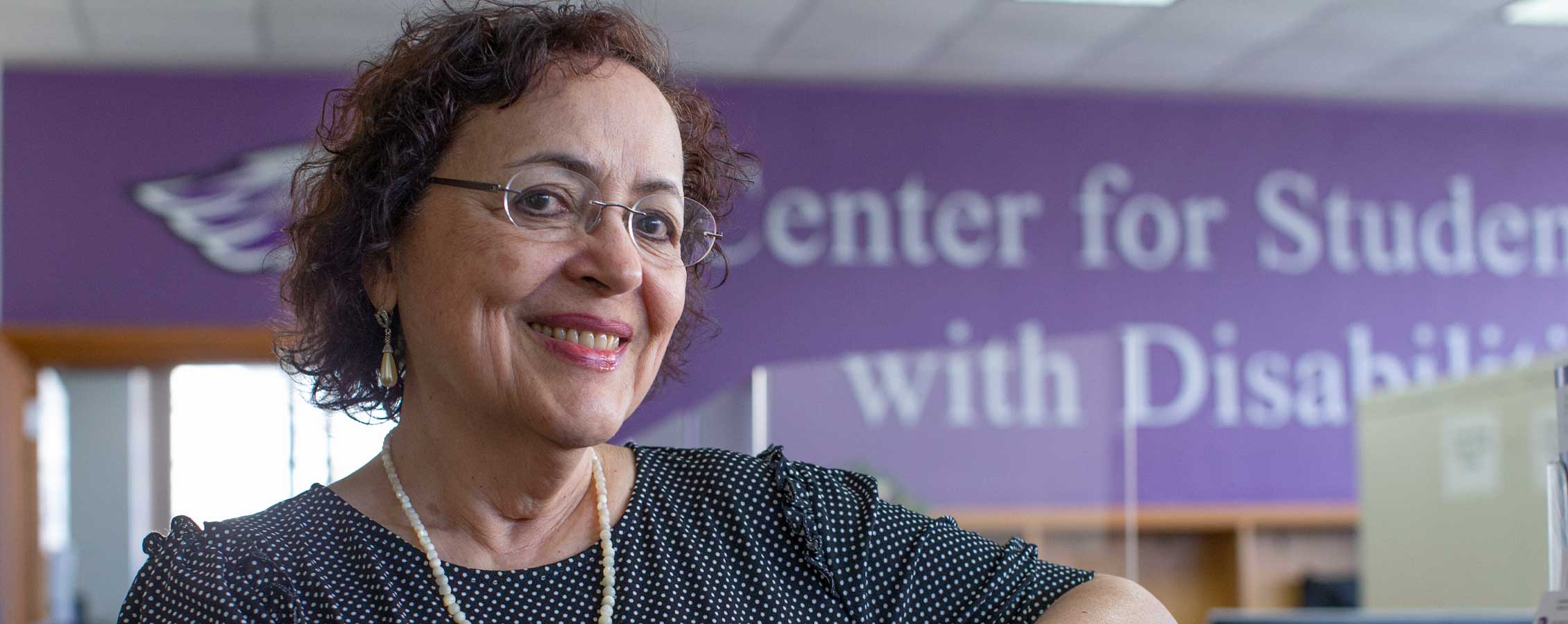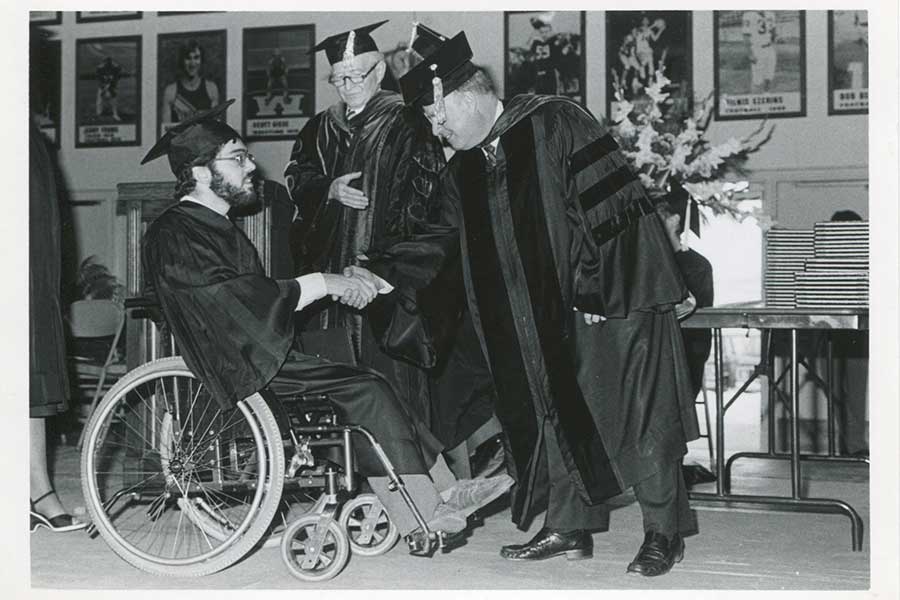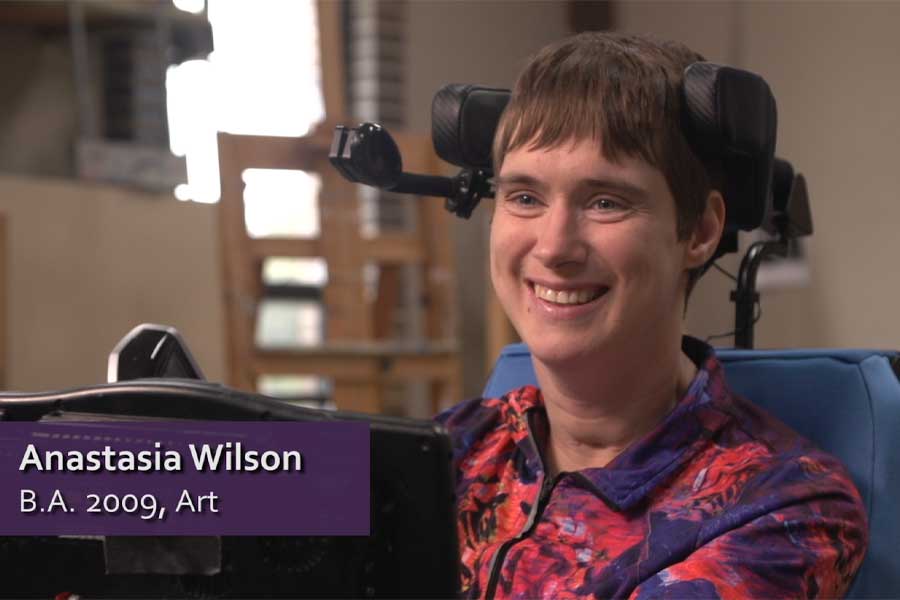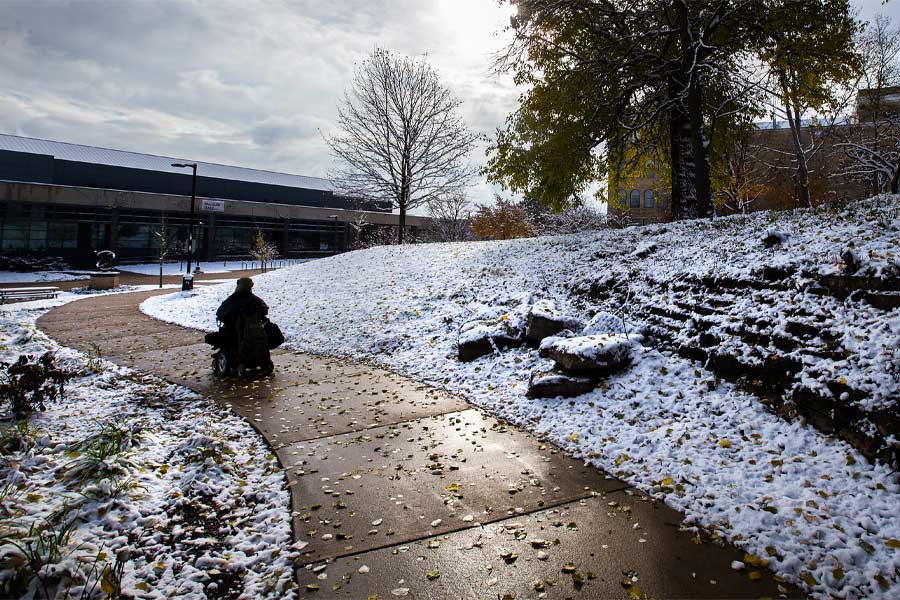Longtime counselor with CSD helps students see their abilities
March 29, 2021
Written and photos by Craig Schreiner
Graciela Colin-Dealca, senior counselor in the Center for Students with Disabilities, sees journeys of discovery happening every day from her vantage point at the center, which is housed in the Andersen Library on the UW-Whitewater campus.
“I love working with students,” said Graciela Colin-Dealca. “And I love working with students with disabilities because oftentimes even parents or school personnel don’t quite believe they can do college. And I love when they see that they can do it and they spread their wings and they succeed on their own.”
“They discover their ability and they get a sense of security in themselves — to believe in themselves that they can do college,” she said.
Colin-Dealca began working at UW-Whitewater in 1990 after receiving her master’s degree in counseling. She started working with students in the Trio program, a federally sponsored program designed for under-represented populations, including low-income, first-generation and a smaller number of students with disabilities. In 2005, she was transferred to work at the Center for Students with Disabilities.
Colin-Dealca’s office is a blend of work and reminders of family. She and her siblings — 15 in all — proudly look out from a photograph on a cabinet. In a picture tacked above her desk, she snuggles a small boy, a grandnephew.
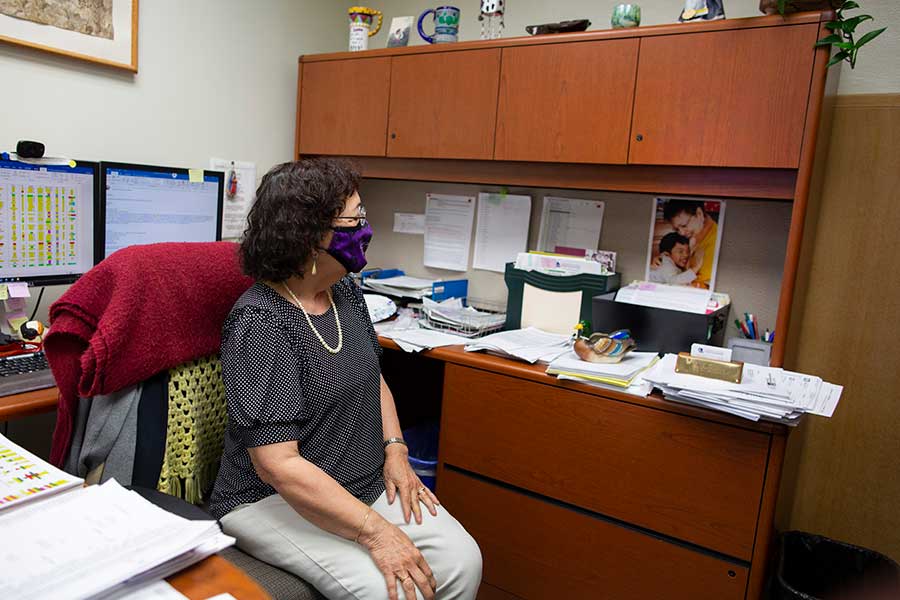
Graciela Colin-Dealca at her desk in the Center for Students with Disabilities on the UW-Whitewater campus, on Friday, March 5, 2021, surrounded by family photos and other momentos.
Colin-Dealca works in CSD admitting students for disability services, assigning them to disability service coordinators and assisting them academically. She said she usually is their first contact in the CSD.
“I communicate with the high schools and I communicate with parents, usually the mother,” said Colin-Dealca, smiling. “It’s usually the mother who comes on the campus visit with the student. I say to the student, ‘Tell me something about yourself and your disability. Their first reaction is usually to look at the mother, and I say ‘No, tell me YOUR story.’ They are used to having their school counselors and parents speak for them.”
“I say to the mothers, ‘Let your child tell their own story. Empower them to have their own voice, to understand their own disability, so they know what their disability is and what they need.’ They have to believe they can do it. And they can do it.”
Colin-Dealca navigates comfortably in situations where parents need to let go or students need to do the real work involved in their own success. She encourages them, but she deals in facts, not feelings. She knows what works, and what doesn’t work.
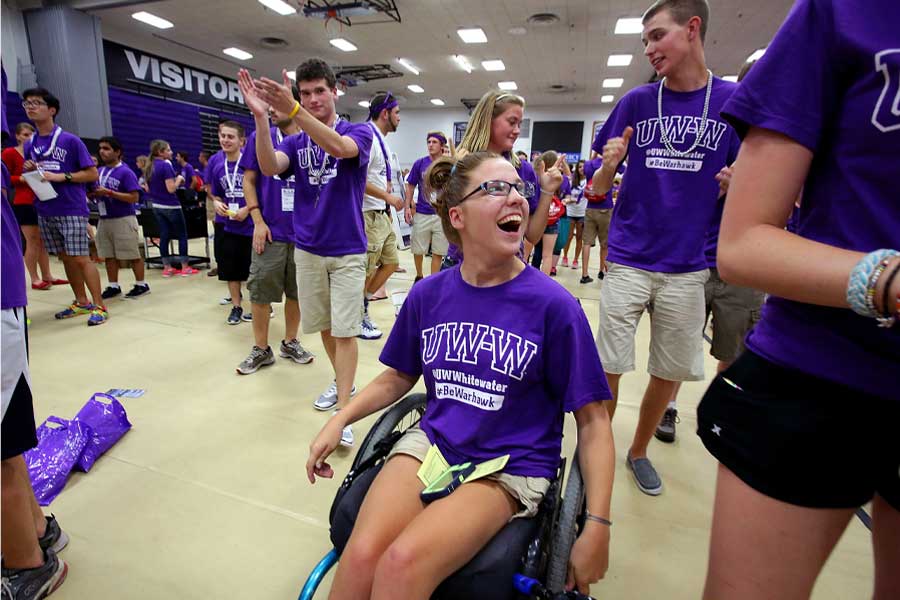
Students celebrate at an event welcoming new freshmen and transfer students to the UW-Whitewater campus.
“Sometimes students do not want people to know they have a disability,” said Colin-Dealca. “It is important to help them overcome the sense of shame and assure them that there is nothing wrong, that they are ok, and that, with our services, they do not need to struggle alone.”
In the center of her desk is a thick printout of names of applicants for the next academic year. Colin-Dealca works with the Admissions Office on applicants who may not meet the required standards for regular admission. When a disability is involved, CSD reviews these applications for a possible conditional admission.
“If we believe that with our support a student can succeed, we recommend that they be admitted conditionally,” she said. “So we say, ‘We believe in you. We’re going to admit you. We’re going to work with you.’”
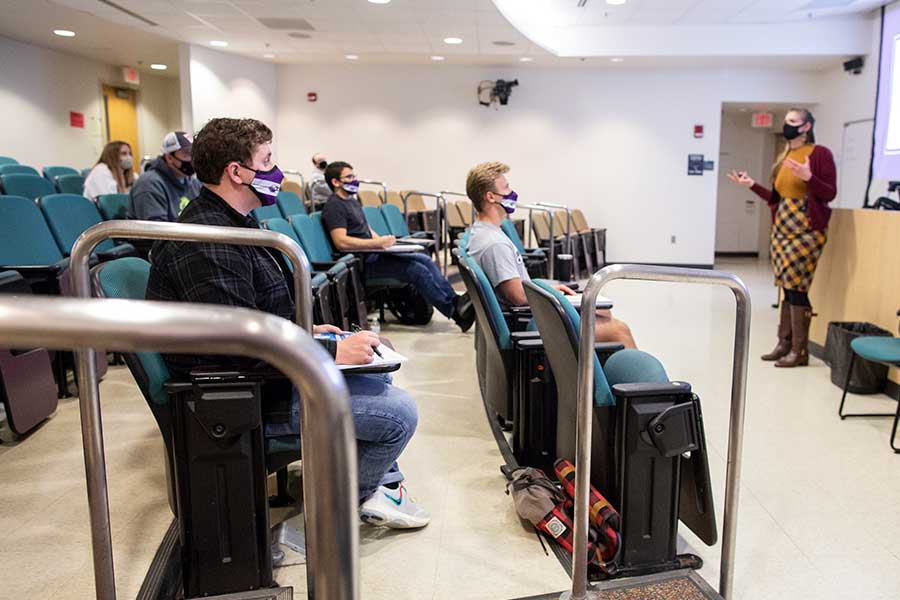
Thomas Hamilton, in black, in a class discussing psychology in the news media with Assistant Professor Olivia McLaughlin, right. Hamilton, a psychology major, was admitted conditionally to UW-Whitewater and has both used the services of the CSD and worked there, with Colin-Dealca. Hamilton has thrived academically — studying abroad, receiving scholarships and earning a spot on the Dean’s List.
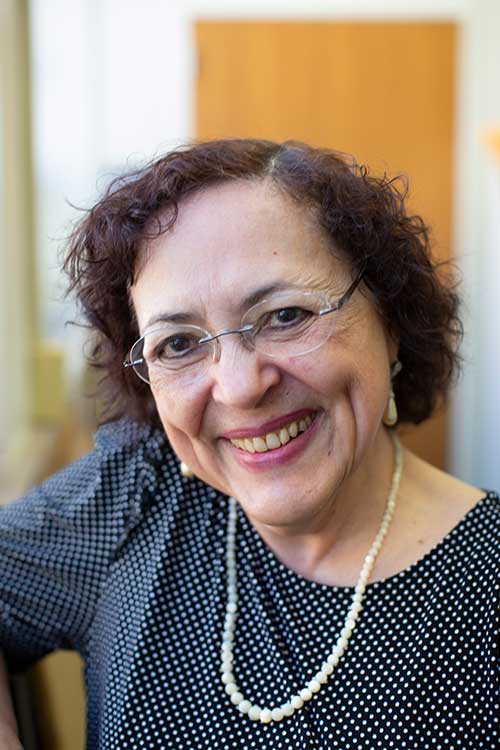
Conditionally admitted students are required to attend the four-week Summer Transition Program that includes two courses, which they must pass with an above-average grade. Having done that, they are admitted to the fall semester, and Colin-Dealca assigns them to the appropriate disability service coordinator(s) at CSD.
“I had one (conditional) student who really struggled the first semester,” said Colin-Dealca. “He developed confidence in himself, he used our services, he used the tutorial services we provide, he used extended time on tests and whatever accommodations he needed. And he graduated with honors. And then he went on and got his master’s degree and he’s very successful working as a professional now.”
Colin-Dealca said registration for services at CSD keeps going up.
“More than 1,200 students use our services from CSD,” said Colin-Dealca. “We have students with a variety of disabilities such as learning disabilities, ADHD, physical impairments, emotional and psychological conditions, and autism, among others.”
When she came to CSD in 2005, Colin-Dealca had not worked in a disabilities office — but she wasn’t intimidated.
“I will learn to work with them,” she thought at the time. Her reason: “My love for students.”

